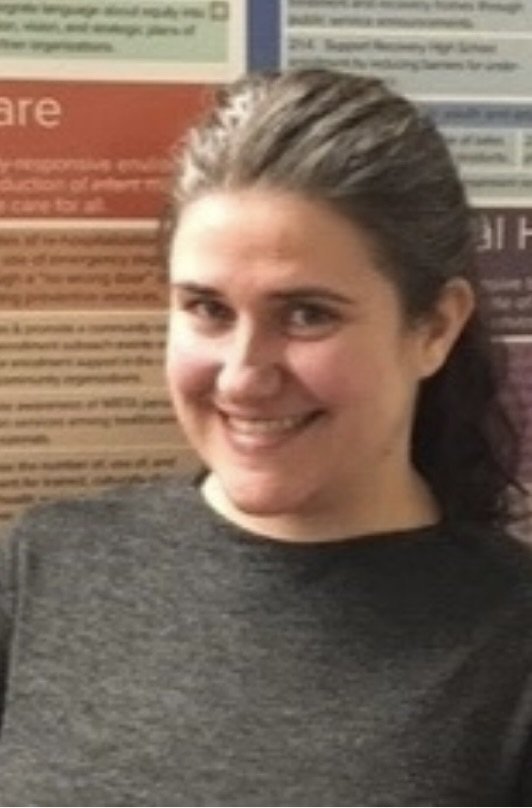The Worcester Trauma, Resiliency & Racial Equity Institute
The Worcester Trauma, Resiliency & Racial Equity Institute is a project of the Coalition that began in 2019. Its goal is to connect and engage community members and public health professionals of Greater Worcester through racial equity training and support networks.
Since inception, the Institute has adapted its model in response to feedback from participants and local contributors. The curriculum of these trainings is intended to build cumulatively. We invite participants to begin with our Foundational Training. Those who have completed the Foundational Training may then register for either Supporting Change Agents or Community of Practice.
The Institute offers 3 unique resiliency and racial equity training opportunities. You can learn about upcoming training opportunities by signing up for the Coalition's newsletter!
Upcoming Opportunities
-
a 4-session, 10-hour total course that is held virtually. It is facilitated by 5 local facilitators and hosts up to 60 participants per course. This training introduces core concepts related to trauma, resiliency, and racial equity, including the use of cohorts broken into professional sectors (such as healthcare, human services, youth serving agencies, etc.) and racial affinity groups.
-
a 6-month series designed to support graduates of the Foundational Training to a) apply training in racial equity to specific projects within their professional or personal work, including developing racial equity leadership teams within organizations and designing public or private advocacy campaigns, OR b) participate in a train-the-trainer program and explore joining our facilitation team, expanding local capacity for delivering racial equity curriculum. The 2022 SCA cohort has been selected and will be working together December 2021 - May 2022. Sign up for our newsletter or check again later to learn when to apply for the next SCA cohort.
-
a year-long series in which all graduates (historically) of the Foundational Training and Supporting Change Agents are invited to participate. It is designed to include continued learning, affinity spaces for further processing, and peer support for confronting challenges with application of principles. The 2022 Community of Practice has been selected and meets January 2022 - May 2022. Sign up for our newsletter or check again later to learn when to apply for the next SCA cohort.
Our History
In 2016, racial equity was explicitly named as a priority area within CHIP. However, the work of racial equity training and leadership development began far before then. The history of racial justice work in Worcester has been successful, joyful, and inspiring but also full of struggle, disappointment, and pain.
The Partnership for Racial and Ethnic Health Equity pre-dated this work as a community group led by Black, Indigenous, Latinx and Asian members who formed a coalition to advocate for resources and bring attention to racial and health equity initiatives. The Partnership advocated to bring the People’s Institute to Worcester to conduct Undoing Racism training. They were advocates for training and dialogues at Worcester Public Schools and for a racial equity framework to be adopted throughout the 2016 CHIP. The Partnership served as a working group for the Coalition for the first years of implementation. After it disbanded in 2018, the Coalition formed a new working group called the Racism and Discrimination Subcommittee of the Coalition.
When the newly reformed Racism and Discrimination Subcommittee of the Coalition met in early 2019, the members discussed that they needed to honor the history of work that had been done before them, commit to developing a brave and respectful meeting space for members, and follow an intentional community-led process to develop new training and leadership opportunities. A facilitator worked with the group over 6 months to support their rebuilding into the collaborative, transparent, and accountable working group they needed to be. The strengthened subcommittee has the infrastructure to harness community leadership and participation to propel its racial equity work.
In late 2018, through an application led by the Coalition, the City of Worcester was awarded a Centers for Disease Control Racial and Ethnic Approaches to Community Health (REACH) grant to address policies, systems, and environmental structures contributing to health disparities in Worcester. A core component of the REACH initiative was funding to support education and leadership for racial and health equity. A contract was developed with the Boston Public Health Commission to develop a local curriculum based on their successful training structure, as well as a train-the-trainer and leadership cohort. We conducted a series of stakeholder interviews to collect data on which to base the curriculum, as well as a series of meetings with the Racism and Discrimination Subcommittee.
The Trauma, Resiliency & Racial Equity Training Institute’s Foundational Training and Supporting Change Agents Series…
…were developed utilizing many of the core components of successful racial equity trainings that had previously been conducted in Worcester, like the People’s Institute for Undoing Racism and Beyond, including a historical perspective, a dual-trainer model with trainers experienced in the field, use of affinity groups and caucusing, as well as a trauma-informed lens, local community context, a mechanism for ongoing and long-term support for participants, and a much more cost effective model.
In 2020, with the sunsetting of the 2016-2020 CHIP, the Coalition embarked on a yearlong, community-wide process to identify new strategies for inclusion in the 2021-2026 CHIP. With funding support from Health Resources in Action, the Coalition was able lead its deepest community engagement process to date which included 2 new community engagement staff and a team of 10 cohort leaders with lived experience and subject matter expertise in root causes of health disparities. Over the course of the year, this team engaged in a root cause analysis of health disparity data from the Community Health Assessment, conducted 35 community conversations with 97 people, and held 6 community forums. After a qualitative analysis, a 2021 CHIP was synthesized. The CHIP revealed an even deeper racial equity focus than the 2016 CHIP, with explicit strategies named for increased racial equity trainings across staff, employees, and volunteers at health care institutions, municipal departments, human services agencies, public safety, educational sectors, and other services.
Worcester, Massachusetts
2020–2021 RWJF Culture of Health Prize Winner
In Worcester, determination and a focus on data build a healthier, more equitable city.
Meet our Facilitators
-

Casey Burns
SHE/HER/HERS
An alumna of Clark University, Casey is the Director of the Coalition for a Healthy Greater Worcester. She is an experienced program manager and community organizer. She brings her experience as the Director of Programs for the Regional Environmental Council to her current role with the Coalition engaging with community members, organizations, and institutions to implement the Greater Worcester Community Health Improvement Plan.
-

Laura Martínez
SHE/HER/ELLA
Laura Martínez is the founder of Martínez Consulting, an Afro-Latinx founded organization in Worcester, MA. The firm focuses on racial equity trainings, food policy, and financial literacy. Laura has been continuously working on the REACH grant, serving our Worcester Latinx population for the last 3 years, and is a graduate student at Georgetown University.
-

Rob Jones
HE/HIM/HIS
Robert T. Jones is a multifaceted consultant in the Inclusion and Diversity/Organizational Effectiveness industry. Formerly the Program Director for the National Conference for Community and Justice, Rhode Island, and Southeastern New England Region, Mr. Jones is now the Chief Empowerment Officer at T. Lee Associates, an international education consulting company. He has conducted a wide range of strategic development trainings in a variety of settings. He attended Boston University and now seeks to use his skills to build long lasting bridges between people of diverse backgrounds.
-

Raquel Castro-Corazzini
SHE/HER/ELLA
Raquel currently serves as the founding director of the City of Worcester’s Division of Youth Opportunities, supporting equitable access to community programs for Worcester’s youth. She has served as a consultant to organizations and institutions for over ten years, promoting diverse, inclusive, and equitable environments. Her awards include the 2019 Healthy Greater Worcester Health Equity Award, the 2017 City of Worcester Municipal Employee of the Year Award, and the 2011 Lewis Hines Award. She received her bachelor’s degree in Spanish from Worcester State University and her master’s in Urban Planning from Boston University.
Equity Tools
Unlike a traditional linear approach for recruitment, an equitable tool for recruitment is crucial for an organization to uncover equitable clear goals & outcomes.
The tool will aid internal decision-makers to intentionally and actively be equitable, with the ultimate goal of eliminating racial inequities.
-
Various efforts across the coalition including work of the Racism & Discrimination subcommittee and a project of the supporting change agents cohort. This group looked to understand what racial equity tool best practices are and then gathered feedback from practical experiences of patterns to develop this guide. This tool was developed with a group of peers across diverse sectors who shared their own experiences. Ultimately, this is a trauma-informed toolkit. We highly advise the practices of this tool be implemented with the guidance of consultants who have experience utilizing equities tools.
-
Identifying clear goals & outcomes
Involving the community in crucial decision making
Identifying “who is affected and who will benefit?”
Examining the potential consequences of decisions, intended and unintended
Mitigating unintended negative consequences
Developing strategies to advance racial equity
-
Normalizes (or explicitly considers) conversations of race
Understands broad visions of systems in government
Organizes & operationalize new behaviors


